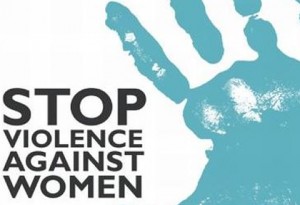MP calls for more draconian laws on gender-based violence
 Current national statistics from the Domestic Violence and Victims Support Unit (DOVSSU), has indicated an increase of nearly 3,000 incidents of gender-based violence from 2010 to 2014.
Current national statistics from the Domestic Violence and Victims Support Unit (DOVSSU), has indicated an increase of nearly 3,000 incidents of gender-based violence from 2010 to 2014.
Ms. Freda Prempeh, the Member of Parliament (MP) for Tano North constituency, who quoted the figure in an interview with the Ghana News Agency (GNA) at Duayaw Nkwanta in the Brong Ahafo Region, said cases rose from 4,697 in 2010 to 7,572 in 2014, describing the picture as frightening and highly unacceptable.
Advocating for a harsher penal code to deal with gender-based offenders to help stem the spiking trend, she said current laws must be reviewed to introduce more draconian punishment for perpetrators.
Ms Prempeh mentioned rape, verbal abuse, deprivation, female genital mutilation, forced marriages and sexual harassment as the violent crimes that continue to undermine efforts at achieving gender parity and women empowerment”
The female lawmaker who was voicing out her views on the observation of International Women’s’ Day, was also not happy about what at she described as “feet-dragging” in the passage of the Property Rights of Spouse and the Intestate Succession Bills.
While expressing worry that women representation in decision making in the country continues to remain low and discouraging, she said not enough has been done to change the present scenario that Ghana has only managed to attain a maximum of 10.9 percent female representation in Parliament since the inception of the fourth Republic and added that “this is far below the minimum target of 30 percent.”
“The picture is even worse at the local governance level where the proportion of women elected as members of District Assemblies declined from 11 percent in 2008 to 7 percent in 2010”, she said.
Ms. Prempeh explained that realizing gender equality and the empowerment of women and girls are pivotal to the achievement of the Sustainable Development Goals (SDGs).
“The achievement of the full human potential and sustainable development was not possible if one half of humanity continued to be under-represented and denied its full human rights and opportunities” she observed.
Source: GNA
